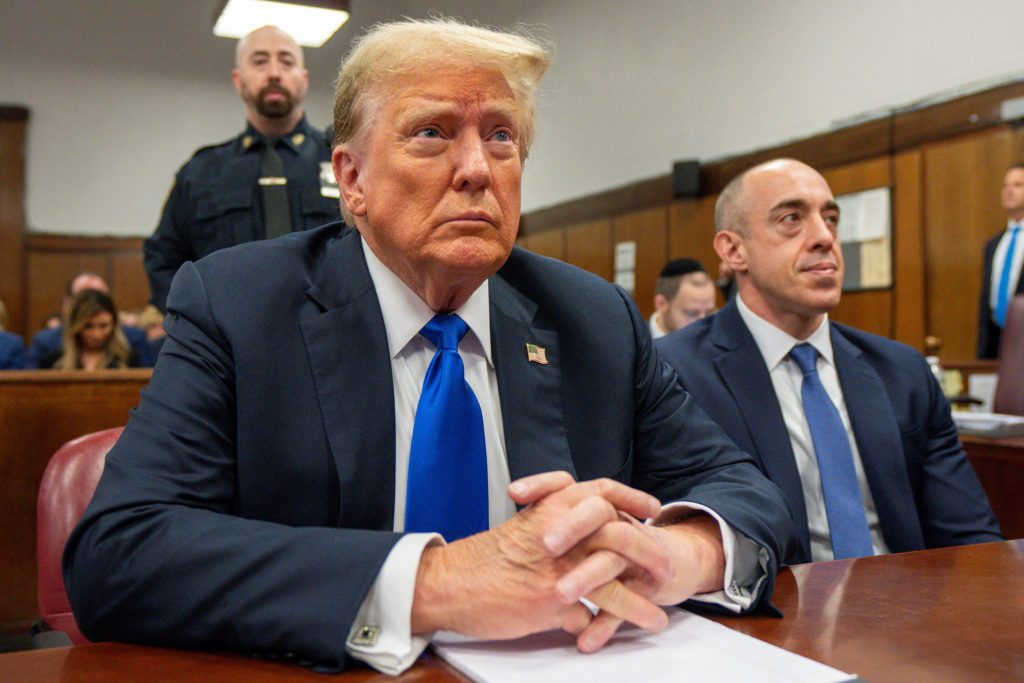This article was updated on 5/30 at 8:37 p.m.
A Manhattan jury convicted Donald Trump on all 34 charges of falsifying business records on Thursday afternoon, a historic end to the first-ever criminal trial of a former American president.
The trial, which lasted for several weeks, centered around Trump’s concealment of hush-money payments to adult-film actress Stormy Daniels from his then-attorney, Michael Cohen. After Cohen facilitated the $130,000 payment with a shell corporation, Trump reimbursed him with checks he claimed were for ordinary legal expenses.
Manhattan District Attorney Alvin Bragg, who brought the charges against the former president last year, drew on his office’s storied history, saying “this type of white-collar prosecution is core to what we do at the Manhattan district attorney’s office.”
“While this defendant may be unlike any other in American history, we arrived at this trial, and ultimately today at this verdict, in the same manner as every other case that comes through the courtroom doors — by following the facts and the law and doing so without fear or favor,” he said at a press conference.
The high-profile trial of a former president garnered substantial attention, including from Republicans demonstrating loyalty to their party’s standard-bearer. Trump’s allies in the GOP, including House Speaker Mike Johnson and far-right representative, Marjorie Taylor Greene, quickly released statements assailing the verdict.
Leaving the courtroom, Trump tersely addressed gathered news organizations with language typically used to convey anger toward people and institutions unfavorable to him.
“This was a rigged, disgraceful trial,” Trump said. “The real verdict is going to be Nov. 5 by the people.”
Though falsifying business records is normally a misdemeanor charge in New York state, prosecutors argued Trump concealed an additional crime prohibiting the influencing of an election “by unlawful means,” which allowed for a felony conviction. The unlawful means, a third illegal act, could have included additional records falsification, tax-related crimes or that Cohen’s payment was a contribution to Trump’s campaign, which would violate campaign finance laws.
Trump still faces three criminal complaints, two federal and one state, concerning the 2020 election and his handling of government documents. His sentencing hearing is scheduled for July 11, four days before the Republican National Convention, where he is expected to officially receive the party’s nomination for November’s general election.



